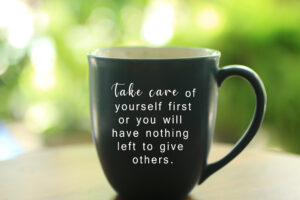Self-care is important. Pursuing “Me time” is a crucial coping skill to reduce stress and improve overall health. But often, there is no guilt-free joy in dedicating time to your favorite activities. It is more common to feel uncomfortable. Self-care is not popular. The trending belief is that self-love is the Mindset of a selfish person. The following describes three unrecognized obstacles to making self-care important.
First – Time Crunch
“I have no time for me,” it is hard to find the time to dedicate to oneself. This pressure to negotiate with time guarantees personal neglect. Where does my time go? It is both stressful and embarrassing to admit that time is a problem. Everyone else seems to manage their twenty-four day. But you are incapable of finding time for you. The first step in changing your behavior is to slow down and consider the consequences of your current lifestyle.
What are the problems with continued self-neglect? Rethink your cost of living in the stress zone. What impact will your lifestyle have on your health retirement? Have you considered the cost of chronic stress and lack of self-care? Imagine your retired future self’s only social event to be daily scheduled medical specialist appointments. Lack of self-care can have future negative health consequences.
Second – Caregiving Role
Societal gender role is intergenerational and often embraced without question. Even in a conventional two-headed family, women remain in charge. They supervise and manage the household day to day operations. The role of women is to think of others, to offer help – in other words, to be nurturers. Managing work, home and caregiving flawlessly is a problematic plan. The unending daily expectations can be overwhelming without self-care time to reduce stress. Making people happy is a great life mission, but there can be a price.
The Covid 19 pandemic uncovered the high cost paid by women caring for their kids. The news stories of women maintaining 24/7 availability shed light on their emotional stress. This situation forced the need to revisit the gender-based roles in society, especially with women outpacing men in the workplace. Self-care, especially during high-stress times, is vital for human survival.
Third – Self-Blame Mindset
Bad things can happen without you doing something wrong. Often the inability to manage emotional stress is seen as a personality weakness. Misperceptions about the origins of emotional stress support this false narrative of self-blame. Interestingly, describing a newly diagnosed physical condition as a personal failure is unusual. Have you ever heard someone saying, “I am a screw-up for having high blood pressure?” It would seem odd to blame yourself for a medical condition like high blood pressure.
Even if you are an achiever and an incredible person, the stress response is an equal opportunity event. It does not discriminate. There is a limit to your ability to complete any task. The high cost to “power through” the workday makes going to bed the only achievable stress management activity. There is no mental energy available after work for self-care.
Making Self-Care Mindset
The ability to change behavior is complex. Self-care starts with making the stress relief decision. This self-awareness allows you to recognize that self-care is not negotiable. Busy individuals with numerous demands and responsibilities quickly pivot toward solving a new problem in the queue. Busyness has no time limits. Make it happen! Why wait for some life catastrophe before you consider self-care.? Make it happen. Why wait for some life catastrophe before you change your behavior? Recalibrate. Rethink your need for a guilt-free self-care action plan. Most busy individuals find it challenging to slow down to figure it out. Identified were three secret obstacles to consistent self-care and stress management. Permit yourself to dedicate an appointment time to reflect and consider the need to change the Mindset. You deserve self-care and stress relief.

